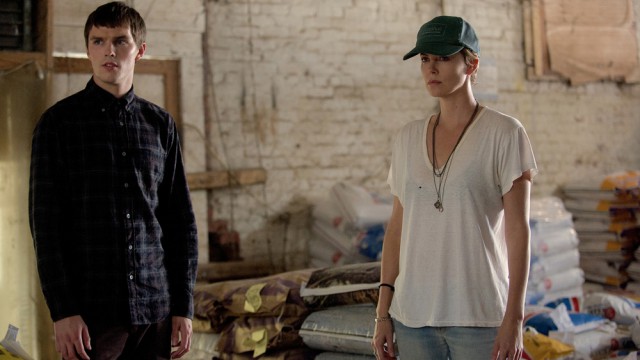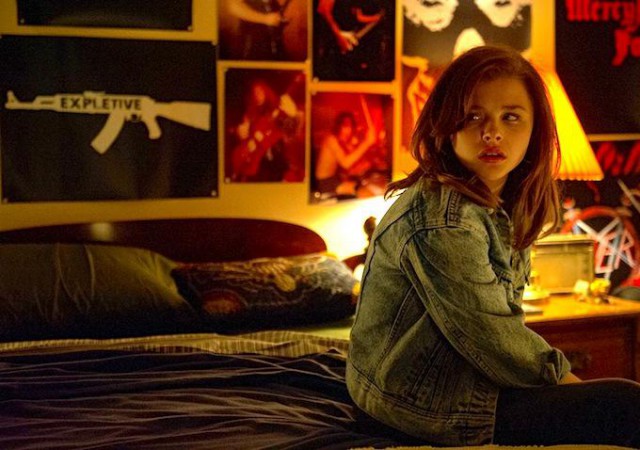
Written and directed by Gilles Paquet-Brenner
USA, 2015
Gone Girl, David Fincher’s 2014 adaptation of Gillian Flynn’s novel of the same name, was among my favorite films of last year. Although the performances were strong and Fincher proved why he’s one of the best in the business, the real star was Flynn: she wrote the screenplay, and her fast and funny dialogue was what made the film tick. The narrative was a compelling and sordid tale, but the witty barbs the characters constantly offered up were what best propelled Gone Girl through its two and a half hour running time.
By contrast, Flynn didn’t write the screenplay for Dark Places (French filmmaker Gilles Paquet-Brenner, who also directed it, did), and her gallows humor is sorely lacking throughout the film. On the surface, the plot sounds no less intriguing than the twisted yarn at the heart of Gone Girl: Libby Day (Charlize Theron) continues to be haunted by the memory of her family’s massacre (from which she was the sole survivor) at the hands of her older brother, Ben (Tye Sheridan), twenty-five years after the incident. Lyle (Nicholas Hoult) tracks her down, hoping to recruit her for the club he runs with his fellow vigilantes, since they’re unsure of Ben’s guilt and hope to find the truth.

They hope that Libby can help them, as she testifies to his guilt in court in spite of her doubts. Although she fears revisiting her traumatic (i.e. “dark”) past, Libby’s running out of the money she made from her survivor’s fund and her memoir on the incident, and her desperation leads her to acquiesce to Lyle’s request in spite of her doubts. Soon enough, she’s visiting the present day Ben (Corey Stoll) in jail, and her conversations with him (along with her flashbacks, in which she recalls his Satan-worshipping past) convince her to go on a journey through Kansas’s sordid side in order to learn the truth.
Again, there’s nothing wrong with the plot construction here, but it’s the people within it who make the film a drag. Paquet-Brenner provides no information about Libby beyond her connection to the massacre, and he leads the viewer to conclude that there’s nothing else interesting about her. Granted, one would expect such an incident to be a significant factor in the character’s life, but Dark Places suggests that it’s the only factor. Likewise, the few lines of dialogue regarding Lyle’s ownership of a laundromat provide at least a bit of information about his life outside of solving crimes for fun, but they’re still far from creating a fully fleshed-out character.
As boring as they are, at least neither of these characters embody tired stereotypes, as is the case with Krissi Cates (Drea de Matteo). Ben’s sexual abuse of her leads her to become a stripper, which is the sort of arc which has been done far too many times to still be interesting. Even worse, Paquet-Brenner tells us nothing about Krissi beyond her stripping and her victimhood, suggesting that there’s nothing else we need to know about her. It’s refreshing to see him attempt to create a developed character, but the effort feels wasted given that she’s a recycling of tired preconceived notions about sex workers.
Although my overall memories of Gone Girl are much more fond than my feelings about Dark Places, I still think the film suffered from comparatively shallow characters. Desi was merely a re-contextualized Artie Ziff, and Amy and Nick came across as too hollow and reprehensible to make for compelling protagonists. That being said, the dialogue was so witty, the editing was so deft, and Gone Girl was simply such a good time that it was hard to raise any objections the film as a whole.
It’s this feeling of a good time which Dark Places is perhaps missing the most. Despite a strong performance from Theron and a more than serviceable plot, its glum tone makes the film boring. None of the characters are intriguing enough to liven it up, making for a dull experience which leaves you wondering why you should care.


